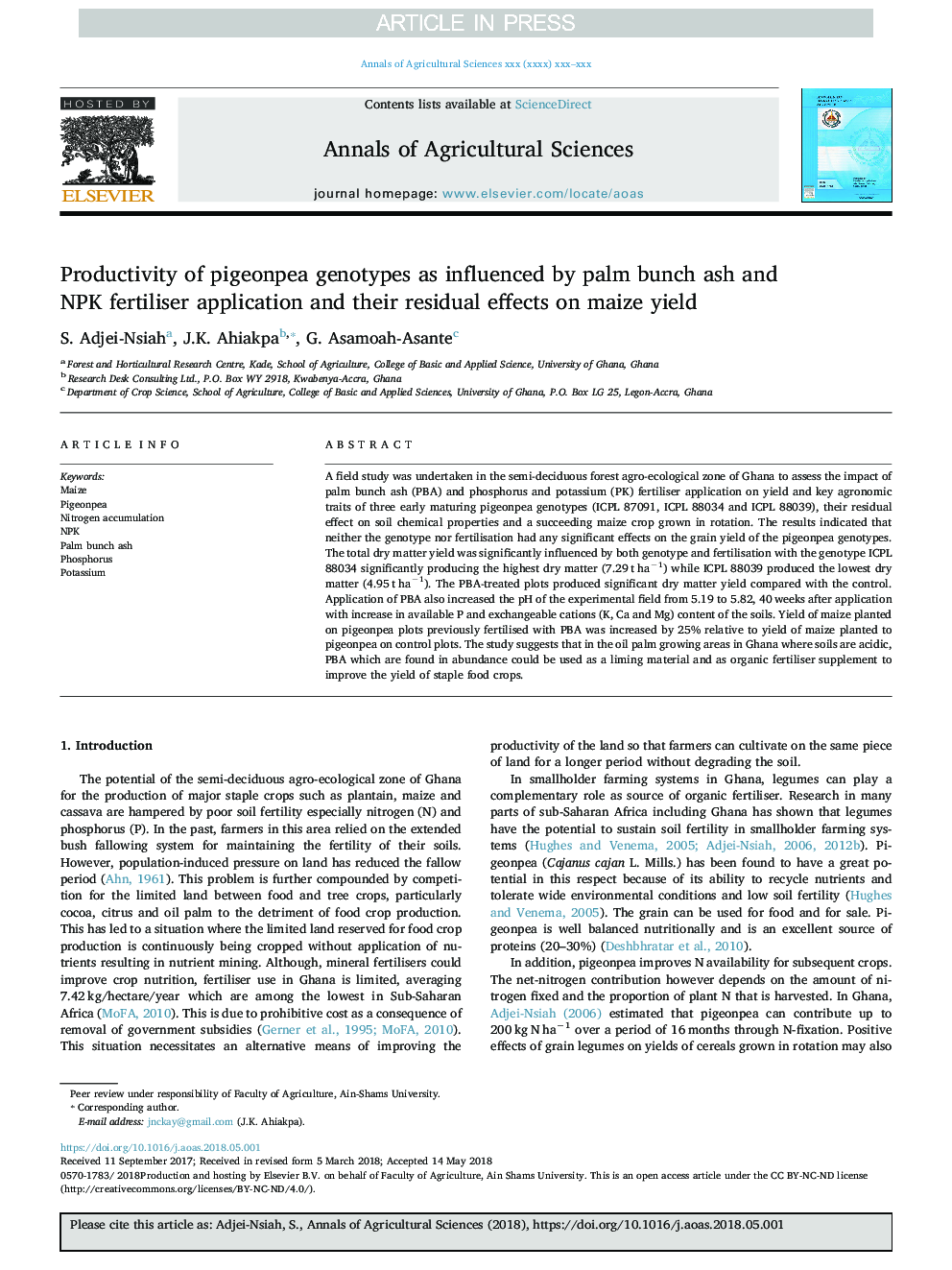| Article ID | Journal | Published Year | Pages | File Type |
|---|---|---|---|---|
| 8875134 | Annals of Agricultural Sciences | 2018 | 7 Pages |
Abstract
A field study was undertaken in the semi-deciduous forest agro-ecological zone of Ghana to assess the impact of palm bunch ash (PBA) and phosphorus and potassium (PK) fertiliser application on yield and key agronomic traits of three early maturing pigeonpea genotypes (ICPL 87091, ICPL 88034 and ICPL 88039), their residual effect on soil chemical properties and a succeeding maize crop grown in rotation. The results indicated that neither the genotype nor fertilisation had any significant effects on the grain yield of the pigeonpea genotypes. The total dry matter yield was significantly influenced by both genotype and fertilisation with the genotype ICPL 88034 significantly producing the highest dry matter (7.29â¯tâ¯haâ1) while ICPL 88039 produced the lowest dry matter (4.95â¯tâ¯haâ1). The PBA-treated plots produced significant dry matter yield compared with the control. Application of PBA also increased the pH of the experimental field from 5.19 to 5.82, 40â¯weeks after application with increase in available P and exchangeable cations (K, Ca and Mg) content of the soils. Yield of maize planted on pigeonpea plots previously fertilised with PBA was increased by 25% relative to yield of maize planted to pigeonpea on control plots. The study suggests that in the oil palm growing areas in Ghana where soils are acidic, PBA which are found in abundance could be used as a liming material and as organic fertiliser supplement to improve the yield of staple food crops.
Related Topics
Life Sciences
Agricultural and Biological Sciences
Agricultural and Biological Sciences (General)
Authors
S. Adjei-Nsiah, J.K. Ahiakpa, G. Asamoah-Asante,
